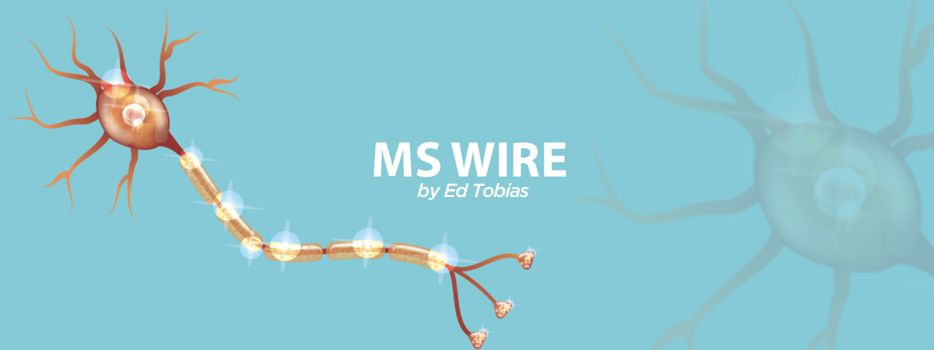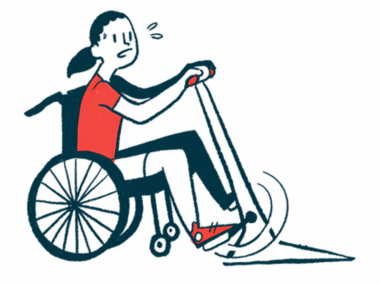MS News That Caught My Eye Last Week: Fatigue Trial, Pediatric MS Relapses, Stem Cell Transplant
Written by |

MS Patients Urged to Enroll in Clinical Trial Assessing Chronic Fatigue Treatments
My “MS Wire” column 10 days ago reported on a study of MS fatigue treatments that compared three medications with a placebo. The study found that none of the medications were much better than the placebo. That didn’t surprise me, because after many years of using modafinil, I’ve found it no longer seems to help me much. As an experiment, I’ve just gone off that medication for the past few days, and I’ve felt no difference. It’s too bad this trial is limited to people in Washington state and Michigan. If I lived there, I’d volunteer tomorrow.
Adults with multiple sclerosis (MS) are being urged to enroll in a new clinical trial — now recruiting in Washington and Michigan states — that aims to assess the effectiveness of different treatments to counteract the effects of chronic fatigue.
The investigators are hopeful that data from this trial, called COMBO-MS (NCT03621761), will help patients, healthcare professionals, and policymakers to select the most effective treatments to manage fatigue, one of the most common symptoms in MS, affecting more than 80% of patients. The trial also seeks to determine the treatments that better suit each patient’s specific needs.
Click here to read the full story.
***
Children With MS Recover Better From Relapses Than Adults, Study Suggests
Though things are improving, I think much more attention needs to be paid to pediatric-onset MS (POMS), which first appears in those younger than 18. So, I’m happy to highlight this study. It just seems logical to me that the younger someone is when MS is diagnosed and treated, the better the chance of slowing or halting its progress will be. If the treatment needs to be targeted differently for young MS patients, let’s develop more studies like this one to aim those treatments in the right direction.
Despite having more severe first and second relapses, children with relapsing-remitting multiple sclerosis (RRMS) tend to recover better than adults with the disease, according to a study.
Better recovery in children may be linked to the activation of genes that, in turn, impair the activation of immune cells driving inflammation in MS.
Click here to read the full story.
***
Stem Cell Transplant Reduces Relapses and Disability in RRMS, Study Suggests
This is a very small study that’s been following people treated with aHSCT for only a few years. But its results prompt me to wonder, once again, why we aren’t moving ahead much faster to add stem cell transplants to the list of approved MS therapies in the U.S.
Autologous hematopoietic stem cell transplant (aHSCT) induces a reduction in relapse rate and physical disability in patients with relapsing-remitting multiple sclerosis (RRMS) who respond inadequately to other treatments, a small study suggests.
The study, “Selective cognitive dysfunction and physical disability improvement after autologous hematopoietic stem cell transplantation in highly active multiple sclerosis,” was published in the journal Nature Scientific Reports.
Click here to read the full story.
***
Mesenchymal Stem Cell Transplant With NG-01 Treatment Shows Promise in Progressive MS
This research takes a different approach to stem cell transplants, injecting the cells into the spinal fluid rather than into the bloodstream. The researchers studied people with progressive MS, people who could use another high-efficacy disease-modifying treatment in their arsenal. Let’s push ahead.
Treatment with NG-01 — an approach that uses patients’ own mesenchymal stem cells (MSCs) — safely and effectively delayed disease progression in people with active, progressive multiple sclerosis (MS), according to final data from a Phase 2 clinical trial.
Delivering these cells directly into the cerebrospinal fluid (CSF) — the fluid that bathes the brain and spinal cord — resulted in greater benefits in all evaluated disease measures, than when cells were injected into the bloodstream.
Click here to read the full story.
***
Note: Multiple Sclerosis News Today is strictly a news and information website about the disease. It does not provide medical advice, diagnosis, or treatment. This content is not intended to be a substitute for professional medical advice, diagnosis, or treatment. Always seek the advice of your physician or other qualified health provider with any questions you may have regarding a medical condition. Never disregard professional medical advice or delay in seeking it because of something you have read on this website. The opinions expressed in this column are not those of Multiple Sclerosis News Today or its parent company, Bionews, and are intended to spark discussion about issues pertaining to multiple sclerosis.






Leave a comment
Fill in the required fields to post. Your email address will not be published.